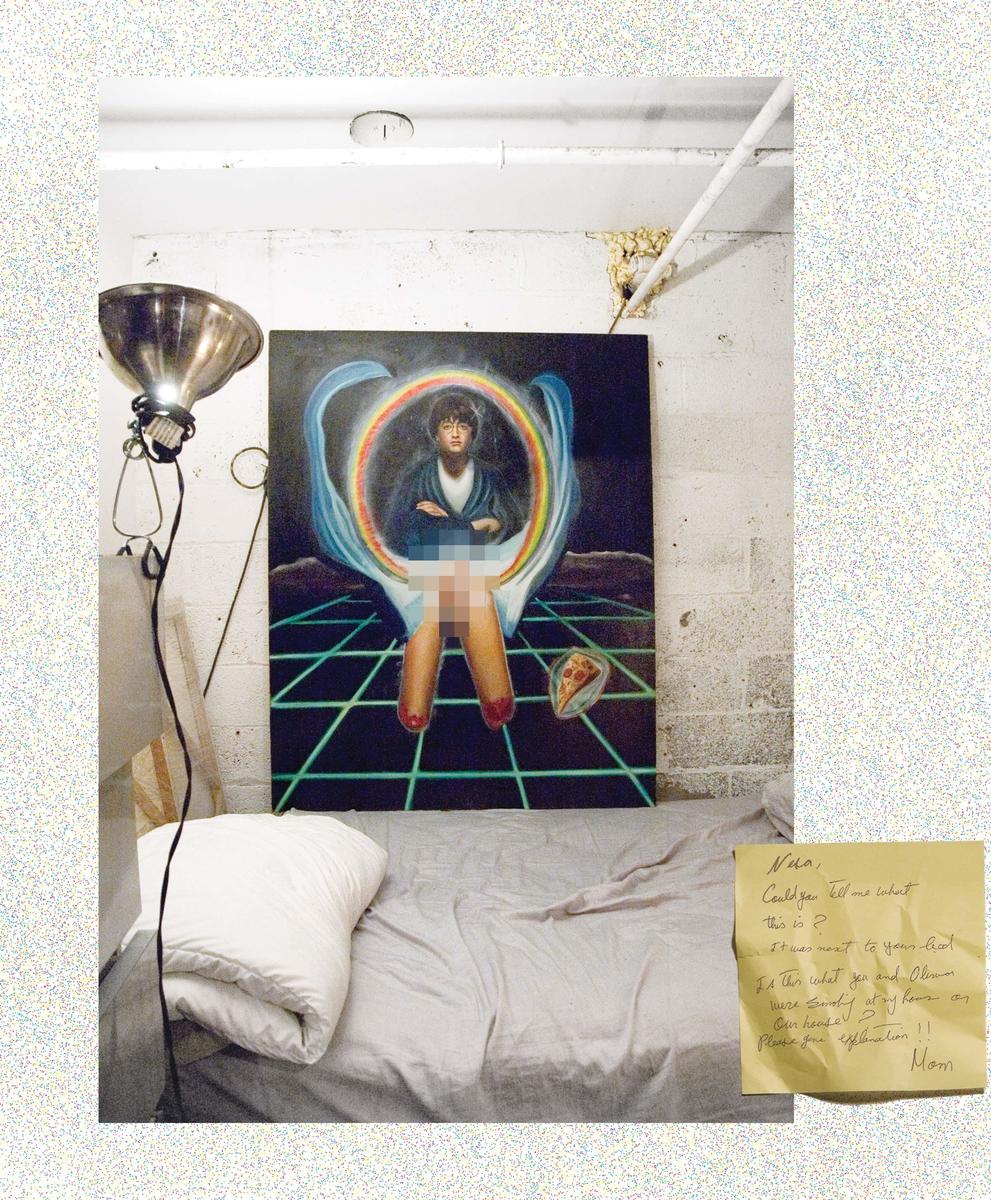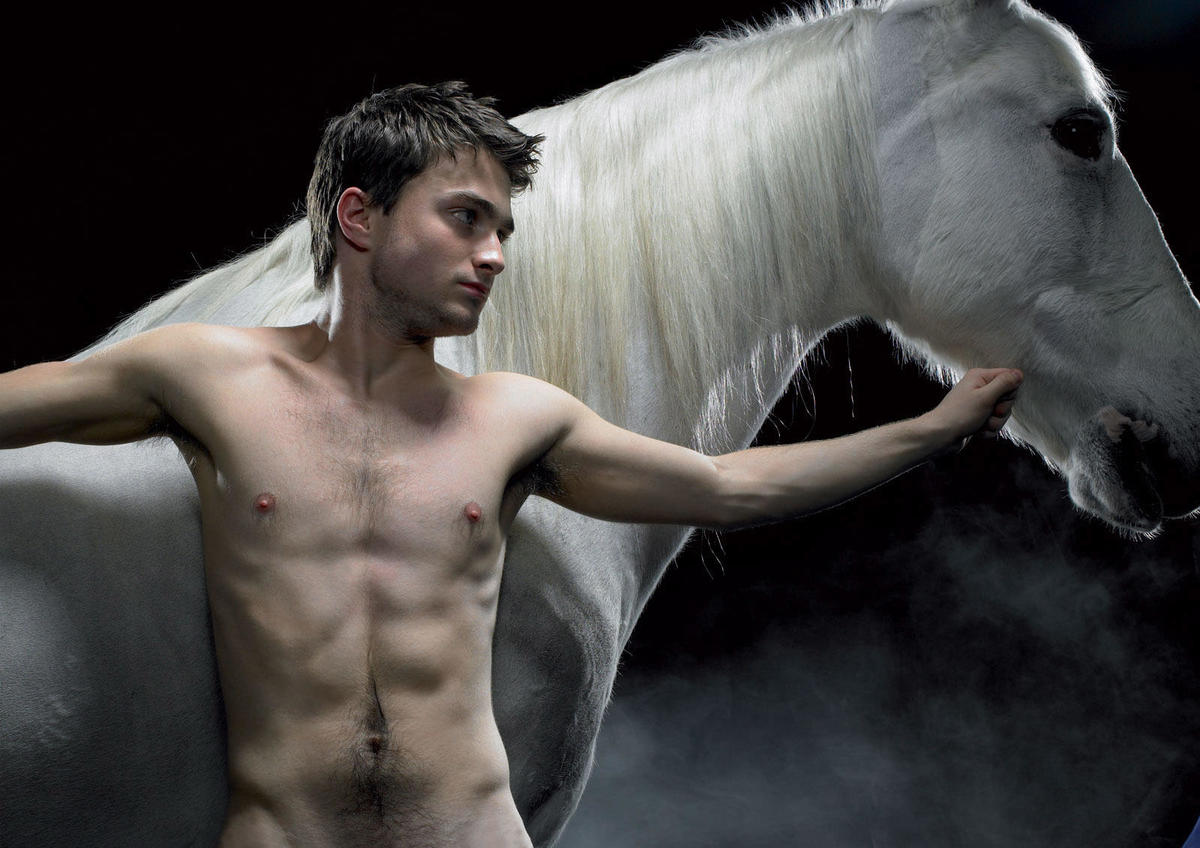
Ron knelt back, positioning himself between Harry’s legs.
“Gimme your wand,” he grunted.
Handing it over, Harry watched as Ron performed a simple “Divesto!” spell and saw all his clothes magically land on the floor next to the bed. He was now lying on his bed, completely starkers, with his best friend staring at his extremely hard cock, looking like he was ready to devour it. He took a deep breath.
—“What Lavender Did,” Supercrazy (2008)
A very condensed version of the plot of JK Rowling’s seven Harry Potter novels (1997–2007) might go like this: an eleven-year-old orphan discovers that he has magical powers; is enrolled at Hogwarts, a secret academy for trainee wizards; and spends the next seven years juggling a busy schedule of schoolwork, sports, and battling the machinations of the evil sorcerer Lord Voldemort, murderer of his parents and wannabe fascist dictator, whom the boy in the end dispatches, thus leaving the wizarding world, if not a utopia, then at least free of clear and present dangers.
The Potter series follows the format of the classic bildungsroman, but while Rowling has Harry experience a measure of adolescent angst, he is — understandably, given that these books are at least nominally aimed at children — seemingly untroubled by the changes puberty is necessarily forcing upon his young body, and he has only the most glancing acquaintance with those staples of teenage experience: drugs and sex.
From matriculation to graduation, the boy wizard does little more than get giggly on a shandy-like concoction called “butter beer” and share a few chaste kisses with his fragrant classmate Cho Chang and his best friend Ron’s sister, Ginny Weasley. (The question of whether Harry, alone in his boarding school bunk, ever enchants himself is left tastefully unaddressed.)
At the conclusion of Rowling’s tale, the seventeen-year-old Harry is left in the unusual position of being, like Graham Greene’s Pinkie Brown, at once a virgin and murderer, and it is only in the epilogue, in which we are told that he went on to marry Ginny and sire three children, that the writer allows him to become anything like a sexual being. As he passes out of children’s fiction, so he may pass into adult life. Harry was just a late bloomer.

Perhaps there was a time when that epilogue would have been the end of things, and speculations about the erotic underbelly of life at Hogwarts would have flourished only in the fevered imaginations of Rowling’s readers. This, though, is not that time. Currently, there are some eight hundred English-language websites offering fan-created Harry Potter–themed erotic stories and images, in which the teenage mage gets it on with a bewildering range of partners, from his fellow pupils to his teachers to the magical creatures that inhabit the Forbidden Forest beyond Hogwarts’s bounds. This material is overwhelmingly concerned with placing Harry in male-on-male scenarios and belongs to the genre of “slash fiction,” a term originally coined by enthusiasts of the first Star Trek (1966–69) who wrote speculative fiction in which various male members of the Enterprise’s crew — Kirk/Spock, Scotty/Bones McCoy — wiled away the long hours at the final frontier in enthusiastic lovemaking.
The majority of Potter slash fiction authors are young women, and while their work by no means eschews the hardcore (should you wish to read about Harry, say, fisting a centaur, your heart’s desire is only a Google search away), it is equally concerned with character and emotion. Interestingly, the boy wizard is most often paired not with his mentors or friends, but with his enemies, the icily beautiful bully Draco Malfoy, or the severe potions teacher Severus Snape. What emerges is not only the well-rehearsed scenario of British boarding-school fumblings, but also an erosion of the often Manichean moral universe of the Potter books through homosexual desire. A hot glance burns through the boundaries between good and evil, and an encounter with an enemy’s wand leaves Harry wondering whether he is so very different from his nemeses after all.
While much Harry Potter slash is, of course, ridiculous, there is something about it that is oddly cheering. Here, readers have pried open the hard, commercial carapace of a multimillion-dollar property and found within it a dark, sometimes beautiful heart. Following the publication of the final Potter book, Rowling herself “outed” Hogwarts’s bachelor headmaster, Albus Dumbledore, as a gay man, a post-rationalization for which there was little, if any, evidence in the books themselves. I’d like to imagine that, browsing the Internet late at night, her work on the series done, she happened across a caché of slash fiction and found the magic ingredient that the boy wizard’s adventures had always lacked.